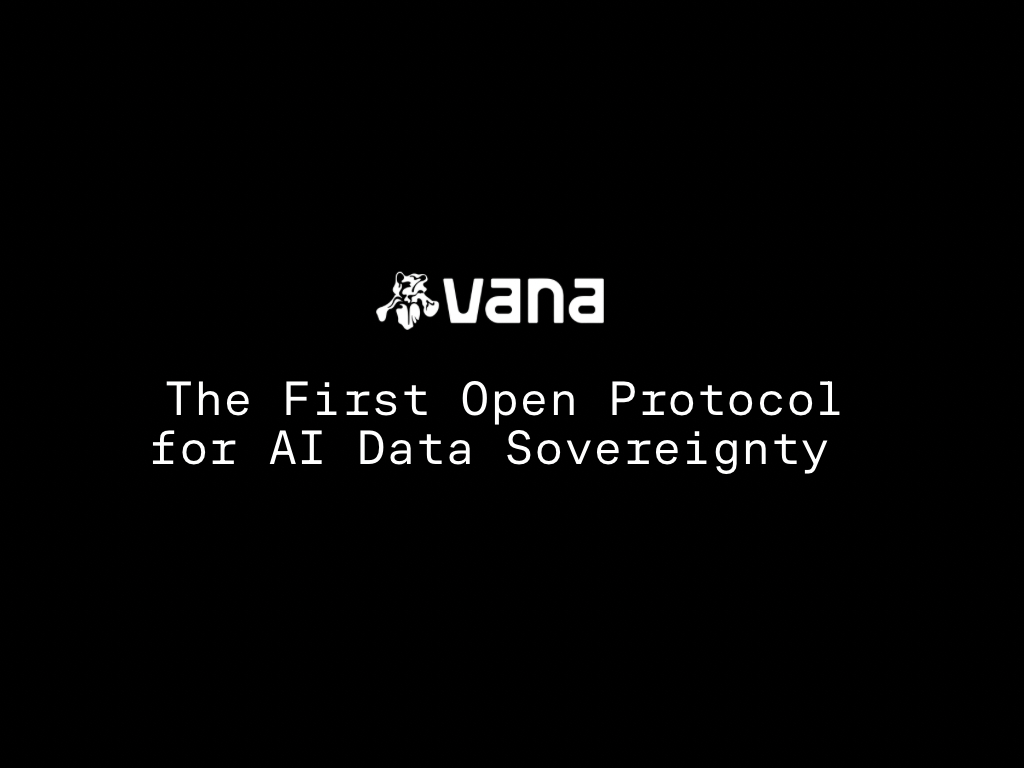
Georgetown, Cayman Islands, December 16th, 2024, Chainwire
During the testnet phase, over 1.3m users contributed more than 6.5m data points to train user-owned AI models. On mainnet, DataDAOs will leverage the $VANA token to enable users to collectively own, monetize and govern their personal data for a stake in the booming AI economy.
MONDAY, DECEMBER 16 2024 — Vana, the pioneering network for user-owned data, today announced the launch of its mainnet and native $VANA token. The launch marks a significant milestone in breaking through the data wall that’s limiting AI development while preserving privacy and giving users a stake in the value their data generates.
Developed by Open Data Labs — a San Francisco-based research and technology company born out of the MIT Media Lab — the Vana network is an EVM-compatible blockchain that enables users to maintain ownership and control over their personal data while allowing that data to be used for AI model training through privacy-preserving technologies.
The mainnet launch follows Vana’s successful testnet phase, which saw over 1.3 million users contributing over 6.5m data points to DataDAOs, processing approximately 1.7 million transactions daily. The testnet demonstrated that programmable data ownership is not just possible, but critical at this point in AI development, says Anna Kazlauskas, CEO of Open Data Labs and inventor of Vana:
“Today’s mainnet launch marks a fundamental shift in how data is owned and monetized in the AI era. Users have always legally owned their data, but platforms have captured all the economic value — and most users don’t even realize their data is legally theirs!
“Vana lays the groundwork for a new kind of data economy – one where users can benefit from the AI models they help create, and where developers can finally access the cross-platform datasets needed to build truly powerful AI. Property rights were the foundation that enabled modern economies to flourish – and in today’s digital economy, programmable data rights are the foundation for the next generation of AI.”
The key features of the Vana mainnet will include:
- Trustless Validation through secure data ingress and trusted execution nodes
- Granular Permissioning allowing users complete control over their data usage
- Onchain Data Provenance tracking how contributed data is applied
- Data Liquidity Pools (DLPs) enabling collective data pooling, governance and monetization via DataDAOs
- Proof of Contribution mechanism ensuring fair rewards for data quality
- Staking $VANA to DataDAOs through Data Hub
With the network’s proof-of-contribution system, users can earn by contributing their data to DataDAOs – receiving dataset-specific tokens that grant governance rights while maintaining control over how their data are used. These data tokens can be traded for $VANA, the network’s native currency. The top DataDAOs also receive DataDAO rewards. Beyond data contributions, users can earn additional tokens by running nodes, validating transactions, and staking to DataDAOs.
With a total supply of 120 million tokens, $VANA will serve as the foundation for the network’s economic model, enabling:
- Governance over network parameters and data usage
- Staking to secure the network and validate data contributions
- Incentivization of high-quality data submissions from data contributors
- Revenue Sharing from AI model development and data usage
Among the DataDAOs building on Vana are DNA DAO, addressing privacy concerns around genetic data ownership, and an expansion of the successful Reddit Data DAO, which has already demonstrated the potential of community-owned data pools. Read more about DataDAOs on Vana here.
The mainnet launch comes at a crucial time when AI development faces increasing data scarcity, while users seek greater control over their digital footprint. Vana’s solution enables individuals to participate in and benefit from the AI economy while maintaining sovereignty over their data.
As AI hits a data wall and more platforms monetize user data without sharing any upside with users, users deserve to own a stake in the future of AI, says Art Abal, CEO of Vana Foundation:
“The current way we buy and sell private data in Web2 is broken. Our data is extracted and held for ransom by a few platforms and data-brokers. They decide how much our data is worth, and the technology it creates. No more. This is just the beginning of a future where we can decide our data’s worth and decide what technology it creates. This is the data revolution!”
Users can start staking $VANA on Data Hub here. For more information, users can visit www.vana.org, read our docs, follow us on X, launch a new DataDAO.
Media Contact:
About Vana
Vana is the first decentralized network for user-owned data, unlocking data as a new digital asset class. The Vana network consists of an EVM-compatible blockchain, secure personal server environment, and set of native contracts designed for the trustless and secure exchange of user-owned data via DataDAOs.The network empowers users to maintain control over their data while participating in the growing AI economy by pooling their data with others and earning rewards for their contributions.
Media Kit | Vana Docs | X | Discord
About Vana Foundation
Vana Foundation is a non-profit entity tasked with ensuring the sustainability and growth of the Vana ecosystem.
About Open Data Labs
Open Data Labs is an independent research company focused on technology to accelerate user-owned data. Open Data Labs created the Vana protocol and provides ongoing core developer services to the Vana Foundation.
ContactNick VivionVana Foundationmedia@vanafoundation.org
Disclaimer: This is a sponsored press release and is for informational purposes only. It does not reflect the views of Crypto Daily, nor is it intended to be used as legal, tax, investment, or financial advice.






















+ There are no comments
Add yours